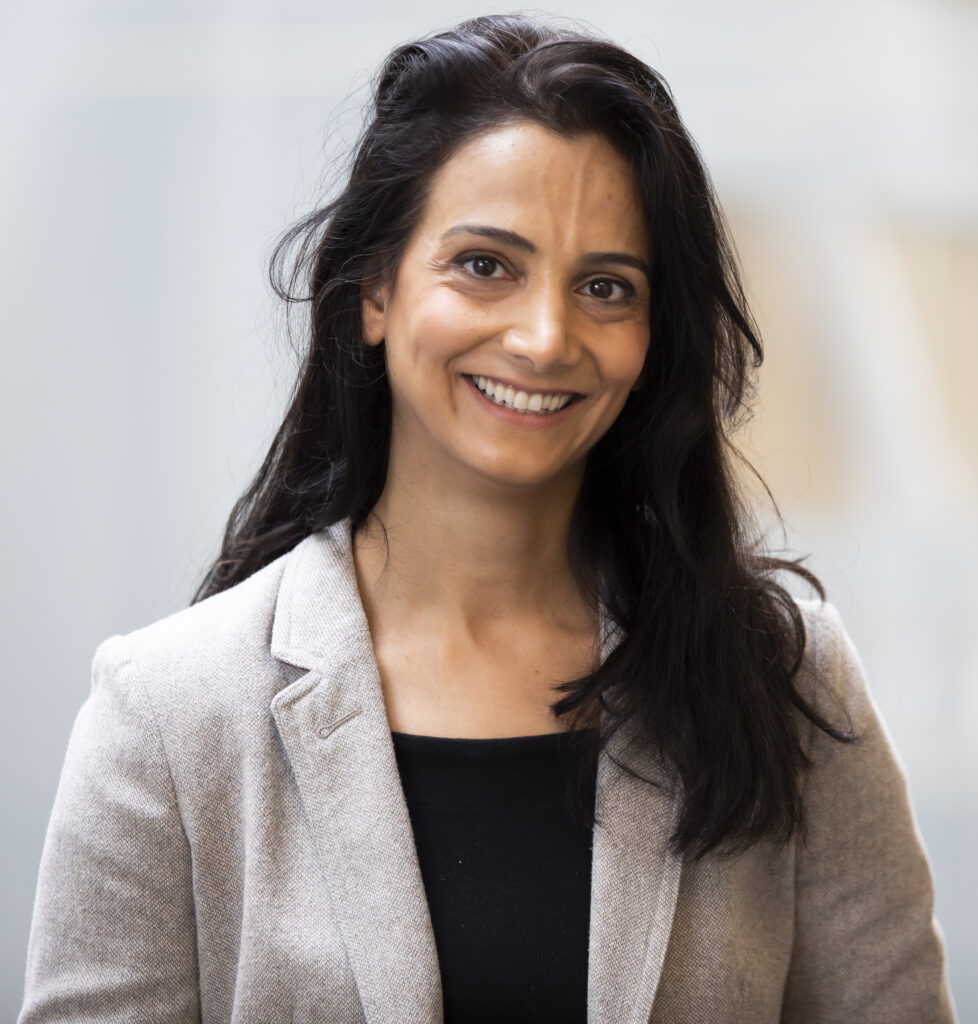Roya Ensafi named Morris Wellman Professor

Assistant professor Roya Ensafi has been named a Morris Wellman Faculty Development Professor. The professorship is awarded to junior faculty members in CSE in recognition of outstanding contributions to teaching and research.
Ensafi’s research focuses on Internet security and privacy, with the goal of creating techniques and systems to better protect users online. She is particularly passionate about online censorship, geo-discrimination, surveillance, and related threats to Internet freedom. Much of her work has focused on designing techniques to detect and defend against adversaries who manipulate Internet traffic in order to block, monitor, or tamper with users’ online activities.
Most recently, Ensafi has led development of VPNalyzer, a tool for crowdsourced investigation of commercial VPNs. Her testing methodology and the VPNalyzer tool was used by Consumer Reports as the first line of systematic investigation to evaluate a set of popular VPNs. This work was featured in a Consumer Reports White Paper detailing their objective evaluation of popular VPNs.
Her research team’s paper, “VPNalyzer: Systematic Investigation of the VPN Ecosystem,”won first place at the Applied Research Competition as part of New York University’s CSAW’22 Cybersecurity Games and Conference. In addition, their paper, “OpenVPN is Open to VPN Fingerprinting,” received both a Best Paper Award and first place in the USENIX/Meta Internet Defense Prize at the 2022 USENIX Security Symposium.
Ensafi also leads the Internet Splintering Project, which has begun investigating how the features of a user’s Internet connection such as their geolocation or IP address can affect their experience online, what is causing this differentiation, and what can be done about it. The ability of online content providers and services to treat users differently based on the features of their network connections leads to users in different countries experiencing a vastly different splintered Internet.
Ensafi is the founder of Censored Planet, a global censorship observatory that provides continuous data about the reachability of thousands of sensitive websites from more than 221 countries. In partnership with Google Jigsaw, Ensafi launched a cloud-based data analysis pipeline and a visualization dashboard, facilitating the use of Censored Planet data by more than 100 organizations spanning research and human rights advocacy. Some of her research team’s high profile rapid response investigations include Russia’s throttling of Twitter, HTTPS interception in Kazakhstan, and China’s Great Cannon attack, among many other instances of network interference.
Ensafi is a recipient of a Google Faculty Research Award, an NSF Research Initiation Initiative award, and the Consumer Reports Digital Lab fellowship. Her work has been cited in popular publications such as The New York Times, Newsweek, Business Insider, Wired, and Ars Technica. Last year, she was invited by the White House to speak on “democracy-affirming technology” at President Biden’s Summit for Democracy.
About the Morris Wellman Faculty Development Professorship
Michael P. Wellman, the Richard H. Orenstein Division Chair of Computer Science and Engineering and Lynn A. Conway Collegiate Professor of Computer Science and Engineering, endowed the Morris Wellman Faculty Development Professorship in his grandfather’s name. Morris Wellman was an engineer who worked for most of his career as a civil servant of the City of New York.
 MENU
MENU 
